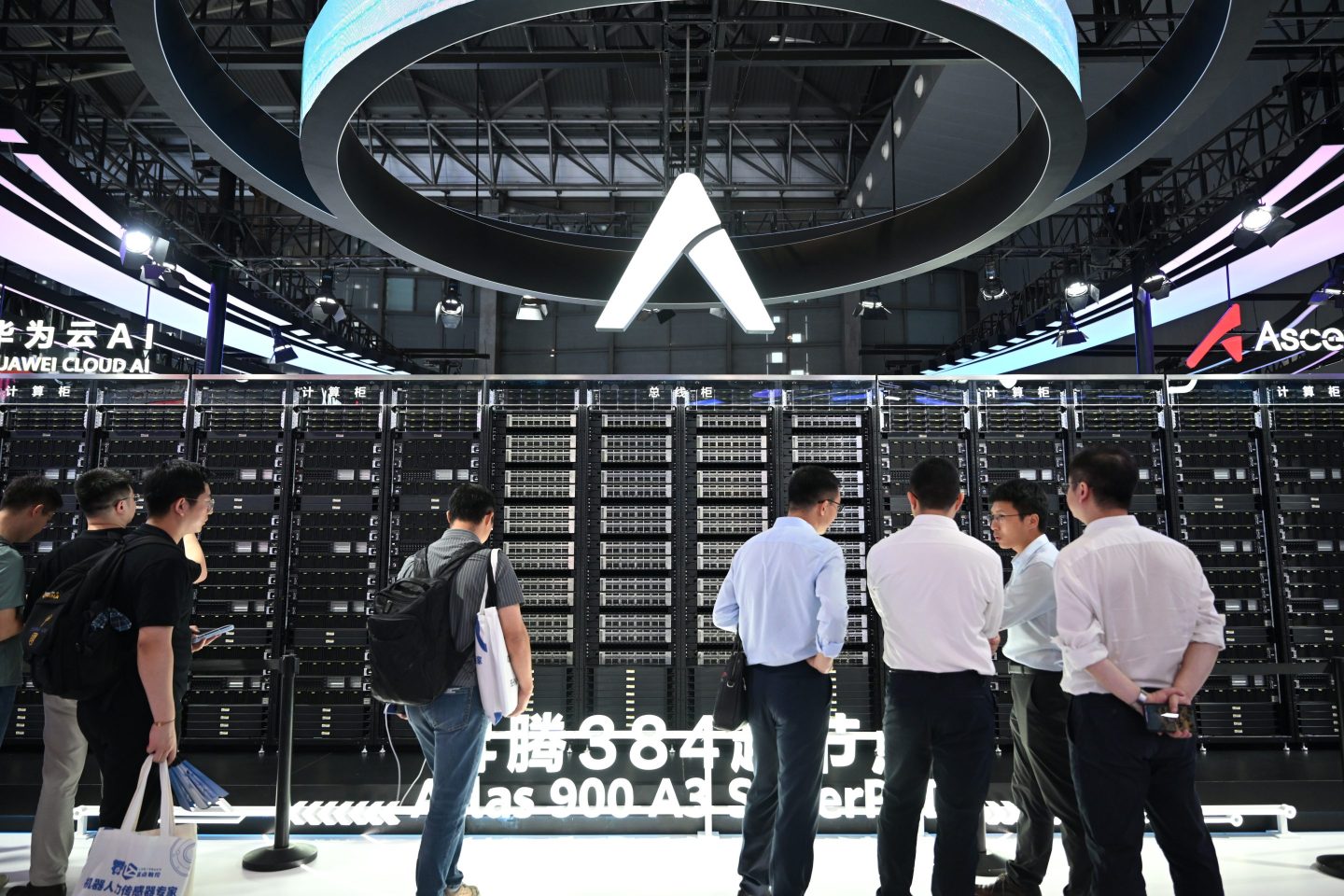Good Morning. Let’s start the week with a pop quiz: Are Apple and Google’s app stores shopping malls or liquor stores?
Depends on who you ask. Apple says its app store is your typical suburban mall. The liquor stores, it says, are individual apps like Meta and Snap. The apps take the opposite view: Think of them as the myriad brands and varieties of booze on a liquor store’s shelves; it’s the store’s responsibility to check IDs at the door.
As I learned from this article, this squabble of similes is about online age verification, an issue that’s becoming increasingly important to lawmakers concerned over how easily minors are exposed to some of the internet’s ample selection of toxic material. Both sides are trying to duck responsibility for age verification, which is unfortunate but not surprising. There are a lot of costs and liability involved—and as any real liquor store owner can attest, a lot of fakes IDs out there.
Today’s tech news below—Alexei Oreskovic
Want to send thoughts or suggestions to Fortune Tech? Drop a line here.
China's AI riposte

Just last week, Trump's AI Action Plan promised to ensure that the U.S. reigns as the world's AI superpower. But recent news in the AI industry shows that China isn't about to sit still.
On Friday, Alibaba released the latest version of its Qwen open source LLM models, the Qwen3-Thinking-2507. According to VentureBeat, the new Qwen "now leads or closely trails top-performing models across several major benchmarks."
Meanwhile, new AI hardware from Huawei is turning heads. The tech company showed off its new CloudMatrix 384 at a conference in Shanghai over the weekend. The product is designed to compete directly with Nvidia's top-of-the-line system, the GB200 NVL72, according to a Reuters report. While the performance of the individual chips may still lag Nvidia's best, Huawei's system-level innovations, such as the "supernode" architecture, allow it to string together a massive amount of chips to deliver blazing performance, according to an industry analyst cited by Reuters.—AO
Alexa+ first impressions
Nearly two years after Amazon announced plans to revamp Alexa for the LLM age, the company is finally rolling something out. The new Alexa+ brings full conversational abilities to its longtime voice assistant and, Amazon says, the ability to perform actions, such as ordering an Uber or booking a restaurant reservation.
So when I recently received an invitation offering “early access” to the beta version of Alexa+, I was eager to take it for a verbal spin.
So how did it do?
My first impression is that the service is pretty good. If it had launched shortly after Amazon first announced an updated version of Alexa in the fall of 2023, I might have said it was very good. But we're now halfway through 2025, and Alexa is competing with a range of LLM-based AI assistants like ChatGPT and Perplexity. So is pretty good, good enough? Read my full experience with Alexa+ here. —Jason Del Rey
Google's virtual dressing room
At its I/O conference earlier this year, Google unveiled an AI-powered tool to let online shoppers try on clothes virtually. Now, that tool is finally available to users in the U.S., on laptop, desktop, and mobile devices.
To use the tool, just tap on any product listing across Google or an apparel product result on Google Images and hit the “try it on” icon. From there, consumers can upload a full-length photo of themselves and see what they'll look like in the outfit—including how materials fold or stretch across people’s bodies thanks to an AI image generation model.
Well, almost. While it does a good job of showing you what the clothes will look like on you, it does not account for body size, so it’s not currently useful as a guide to whether an outfit will fit you well. In our own tests, the tool shaved several pounds off of us to showcase the clothes. And while that was a nice fantasy, the reality would likely look a bit different.—Chris Morris
Fortune AIQ: AI's long reach across new industries
Fortune recently unveiled a new ongoing series, Fortune AIQ, dedicated to navigating AI’s real-world impact. Our latest collection of stories explores how businesses across virtually every industry are putting AI to work—and how their particular field is changing as a result.
- How Walmart, Amazon, and other retail giants are using AI to reinvent the supply chain—from warehouse to checkout. Read more
- Meet the legacy players and upstarts using AI to reinvent the energy business. Read more
- AI isn’t just entering law offices—it’s challenging the entire legal playbook. Read more
- How a bulldozer, crane, and excavator rental company is using AI to save 3,000 hours per week. Read more
- AI is already touching nearly every corner of the medical field. Read more
More tech
Meta's new chief AI scientist. Yet another OpenAI hire.
Sharepoint hack questions. Did a leak in the early alert system leave it exposed?
Meta stops EU political ads. A grudging halt.
Women's app Tea hacked. 72K images accessed.
Palantir's swelling value. Welcome to the top 20.












